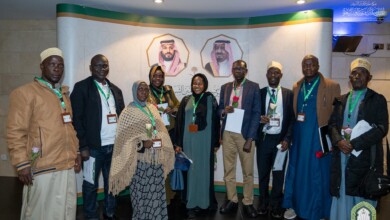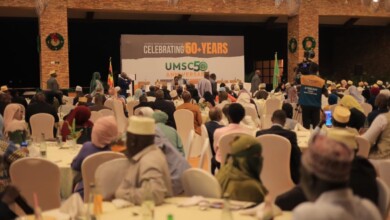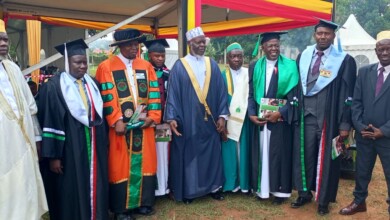Court Outlaws Sections of the Muslim Marriage Law

Muslim marriages conducted under the cover of certain provisions of the Marriage and Divorce of Mohammedans Act will no longer be recognized following a Constitutional court ruling that declared certain provisions of the colonial-era law as inconsistent with the Constitution of Uganda.
The Marriage and Divorce of the Mohammedans Act was enacted by the colonial government in April 1906, to strike a balance between secular laws and the Islamic law on marriage. It is under this law that all the subsequent governments have registered and recognized marriages celebrated in accordance with the Islamic Sharia.
“All marriages between persons professing the Mohammedan religion, and all divorces from such marriages celebrated or given according to the rites and observances of the Mohammedan religion customary and usual among the tribe or sect in which the marriage or divorce takes place, shall be valid and registered as provided for in this Act,” reads Section 2 of the Act.
In 2021, rights activists, Michael Aboneka and Martins Kirya petitioned the Constitutional court, challenging Section 11 (a) of the Customary Marriage Act, 1973, the Marriage and Divorce of Mohammedans Act, 1906 and the Hindu Marriage and Divorce Act, 1961, arguing that the above provisions allowed child marriages.
The petitioners argued that Section 11 (a) of the Customary Marriage (Registration) Act, which provides that girls between 16 to 17 years may lawfully enter a customary marriage, contravenes Article 31 (1) of the 1995 Constitution, which sets the minimum age for marriage for women at 18 years.
They also challenged Section 4 (a) and 5 (r) (a) of the Marriage and Divorce of Mohammedans Act and Section 2 (1) (c) of the Hindu Marriage and Divorce Act, on similar grounds. They further questioned the intent of Section 11 (a) and (b) of the Customary Marriage (Registration) Act which they said, sets a different minimum age for marriage – 16 years for a woman and 18 years for a man, which they said contravenes the right of women to equal treatment with men and therefore, inconsistent with Articles 33 (4) of the Constitution.
They also challenged Section 3 of the Mohammedans Act, which allows for the appointment of guardians for purposes of giving consent to marriage on behalf of a bride below the age of 18 years, saying that it is inconsistent with Article 31, which provides that women may only marry if 18 years or older.
On Monday, a five-judge panel led by Justice Elizabeth Musoke unanimously ruled that any law that allows girls below the age of 18 to marry is inconsistent with the 1995 Constitution and therefore null and void.
In a lead judgment, Justice Musoke agreed with the petitioners that indeed the said provisions were inconsistent with the constitution.
“I would declare that Section 11 (a) of the Customary Marriage (Registration) Act, Cap. 248; Section 5 (1) (a) of the Marriage and Divorce of Mohemmedans Act, Cap. 252 (to the extent that it permits registration of marriages involving persons below the age of 18 years) and Sections 2 (1) (c) and (d) and 3 of the Hindu Marriage and Divorce Act, Cap. 250 are in contravention and/or inconsistent with Article 31 (1) of the 1995 Constitution (as amended), because they permit girls between the age of 16 and 17 years to marry, yet the highlighted constitutional provision permits the marriage of only girls aged 18 years or older…I would therefore declare that the impugned provisions in (a) are null and void,” the judgment reads in part.
The other four justices who agreed with Musoke’s reasoning are Fredrick Egonda-Ntende, Christopher Madrama, Monica Mugenyt, and Christopher Gashirabake.






